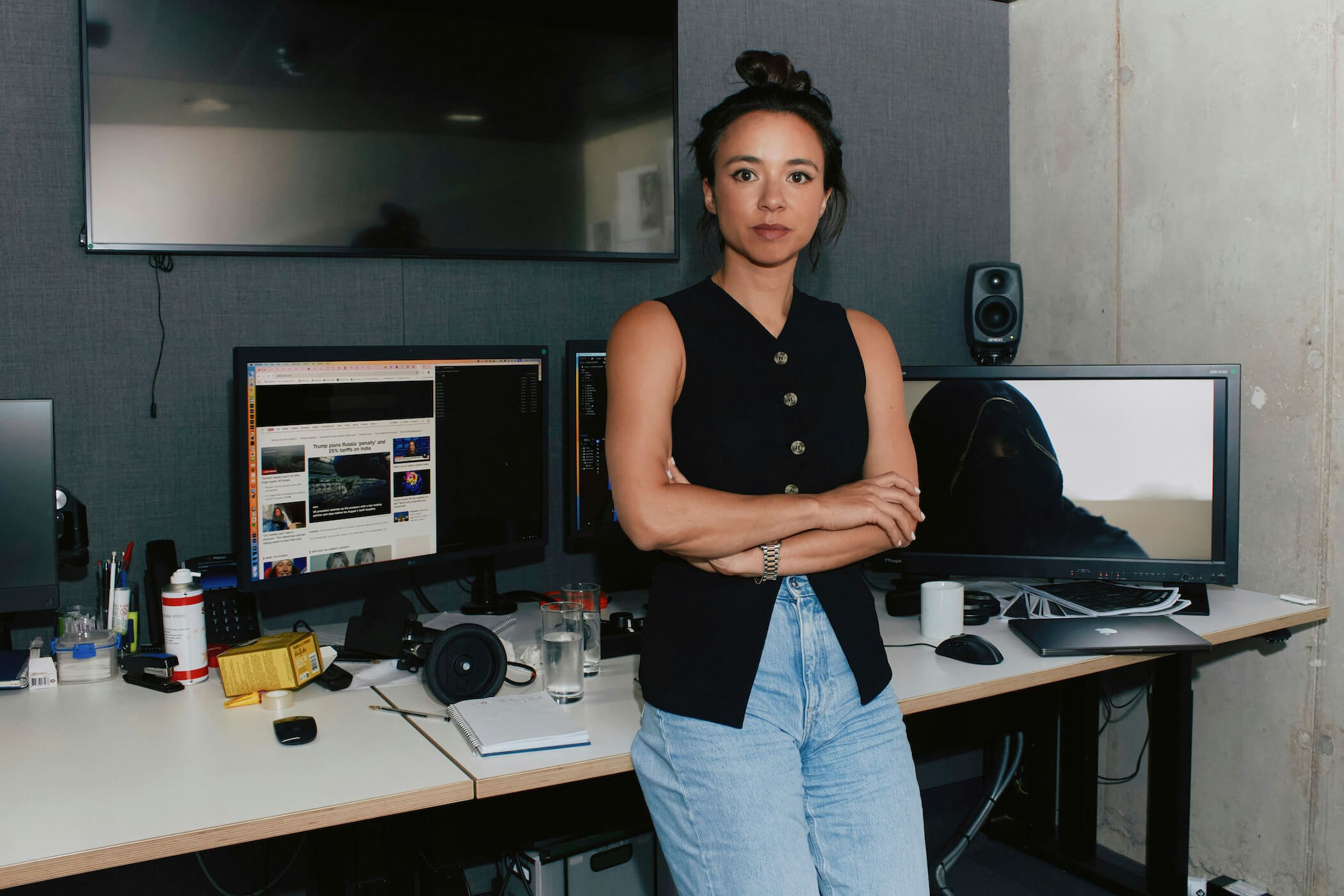
Getting Sticky With Isobel Yeung
Photos by Mafalda Silva, Words by AnaMaria Glavan
Isobel Yeung’s passion for people was born in her father’s Chinese restaurant in southern England, where she grew up listening to tales of his native Hong Kong—tales that made her restless for the world beyond her hometown. “I became desperate to go to these places I’d heard so much about, to hear people’s stories firsthand and see them unfold for myself.”
Isobel spent a decade as a correspondent and producer at Vice, where she covered the Hong Kong protests, and now works as an international correspondent for CNN’s London bureau. Over the course of her career, she has earned 10 Emmy Awards, a Peabody Award, a duPont-Columbia Award, a Royal Television Society Journalism Award, the Foreign Press Association’s Journalist of the Year Award, and multiple Overseas Press Club Awards. Her reporting has taken her everywhere from Afghanistan and Ukraine to Syria and Iraq. (In our interview, Isobel joked that she didn’t want to seem “too noble” when talking about what she hopes to pass on to her son—so we’re adding “most humble person ever” to that list of accolades.)
In our conversation with Isobel, what moved us most was her unwavering belief in the importance of journalism itself: the integrity of reporters who risk their safety for the sake of a better, more informed world. At a time when “fake news” accusations have eroded public trust for the better part of a decade, Isobel is representative of the antidote: journalists who insist that every person deserves freedom, dignity, and the chance for their story to be told. Who risk their lives to deliver truth. They deserve our respect.
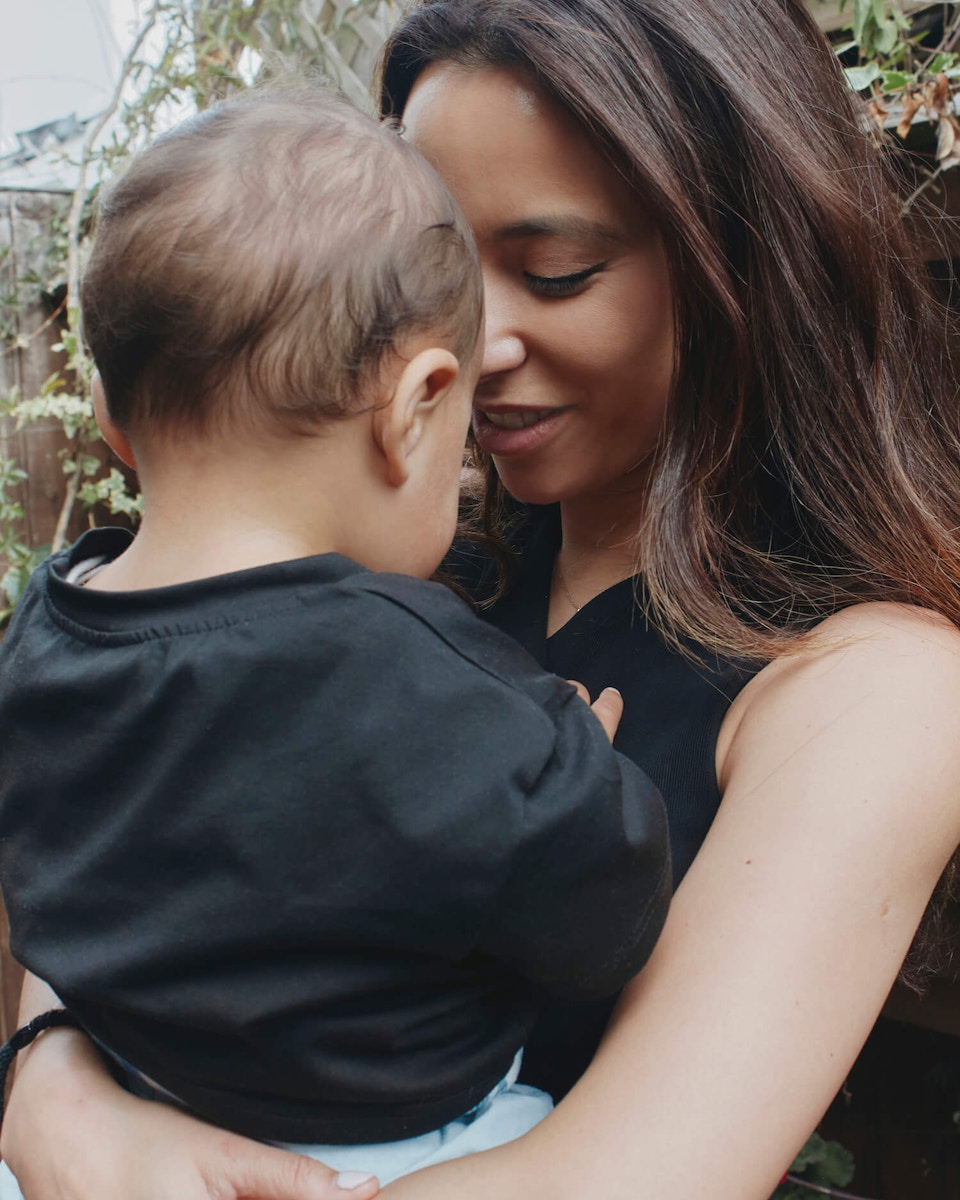
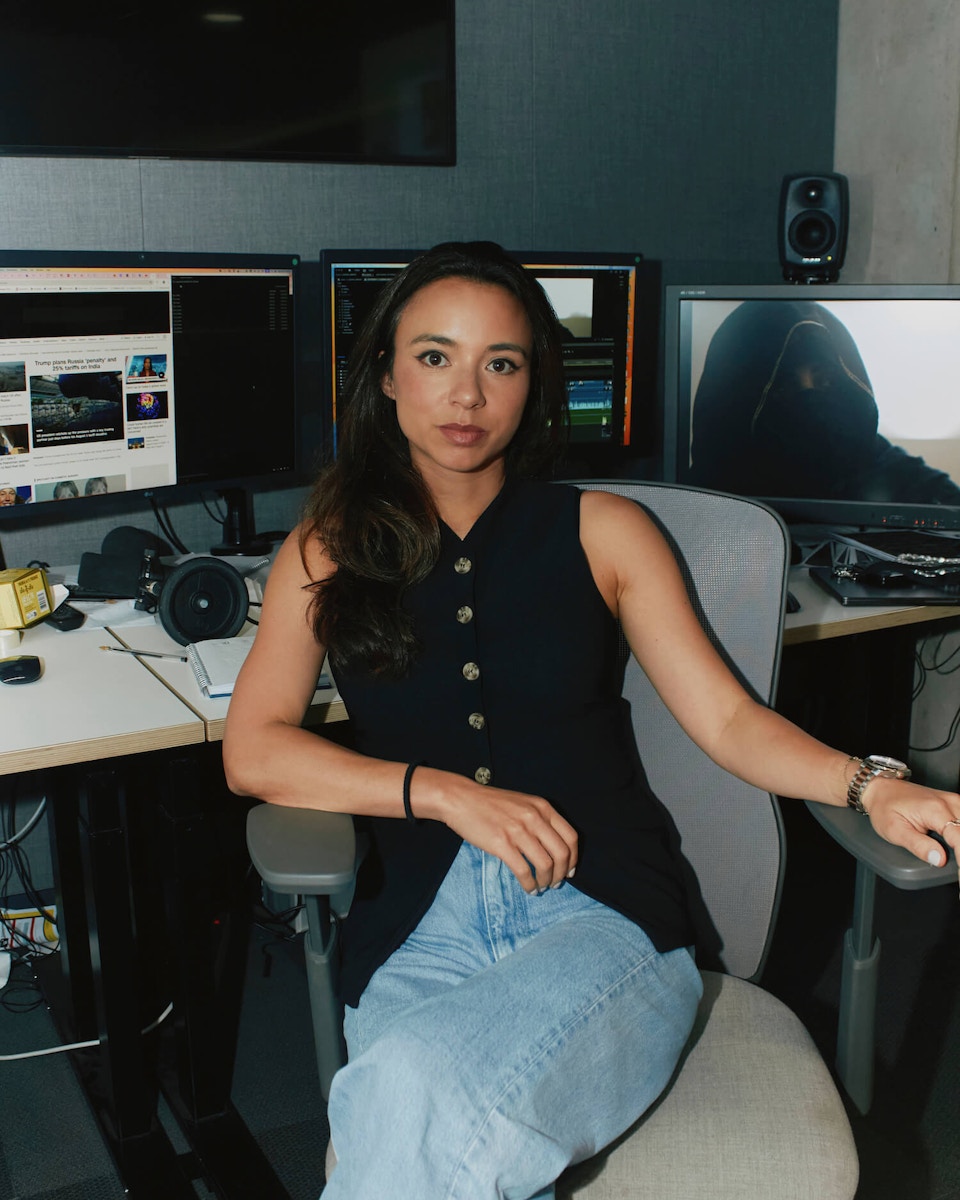
Reporting requires perspective—not just your own
I was a travel reporter for a few years. I worked for a Chinese channel, traveling around the world and throughout China and Asia. It was fun but you quickly realize that travel for the sake of travel isn’t necessarily fulfilling. For me, it only became interesting when I could talk to people and hear their stories. That was the missing piece. I felt like I was scratching the surface without really diving in and understanding the deeper issues at play, what people were actually living through. That’s how I transitioned into journalism.
Now I’m at CNN and I’m always juggling several stories at once. Sometimes a tip comes directly from someone on the ground, other times I’ll read or hear about something and reach out to people in that area. It’s relatively easy to connect with people almost anywhere with the internet and social media. It snowballs from there. You talk to more and more people, and the story takes shape.
For example, before going to Afghanistan, I spoke to a couple dozen people. That gave me a sense of both the larger issues at play—like massive U.S. and international aid cuts, with the U.S. canceling $1.7 billion in contracts—and the human impact on healthcare, education, food, cash handouts, even psychological support for women. Within those big strokes, I look for individuals who can share compelling personal stories. I look for people audiences can empathize with, relate to, or who can articulate what’s happening in a way that opens our eyes.
Once a story is developed, I pitch it to my bosses in the UK and the U.S. It goes through an approval process. Sometimes I have to argue my case, sometimes it’s a no-brainer. My goal is always to balance what will connect with viewers and what I believe needs to be told.

" I felt like I was scratching the surface without really diving in and understanding the deeper issues at play, what people were actually living through. That’s how I transitioned into journalism."
The brave women of the world
Afghanistan is top of my mind for me because I just got back. It’s a country now run by the Taliban under strict authoritarian rule, and what many in the international community would call a gender apartheid is happening there. Half the population—women—are essentially blocked out of public life: they can’t go to school, can’t go to the park, can’t show their faces, can’t raise their voices in public. I think a lot about our responsibility towards them and our responsibility to protect those individuals.
And while of course we want to hear those stories, nothing trumps their security. In some cases, that means we’re not able to meet in person. I spoke to many people on secure lines across the country. Really brave women wanted to tell us their stories, fully aware of the risks, as were we. Then it becomes a case of figuring out where, how, and when is safe to meet. We had to take extreme precautions—often being trailed, sometimes interrupted during interviews. It was really difficult to find safe spaces for people to talk.
There’s also data protection: making sure footage is handled properly, faces blurred, voices distorted if necessary. There’s a lot that goes into ensuring individual safety because no story is worth risking someone else’s security.
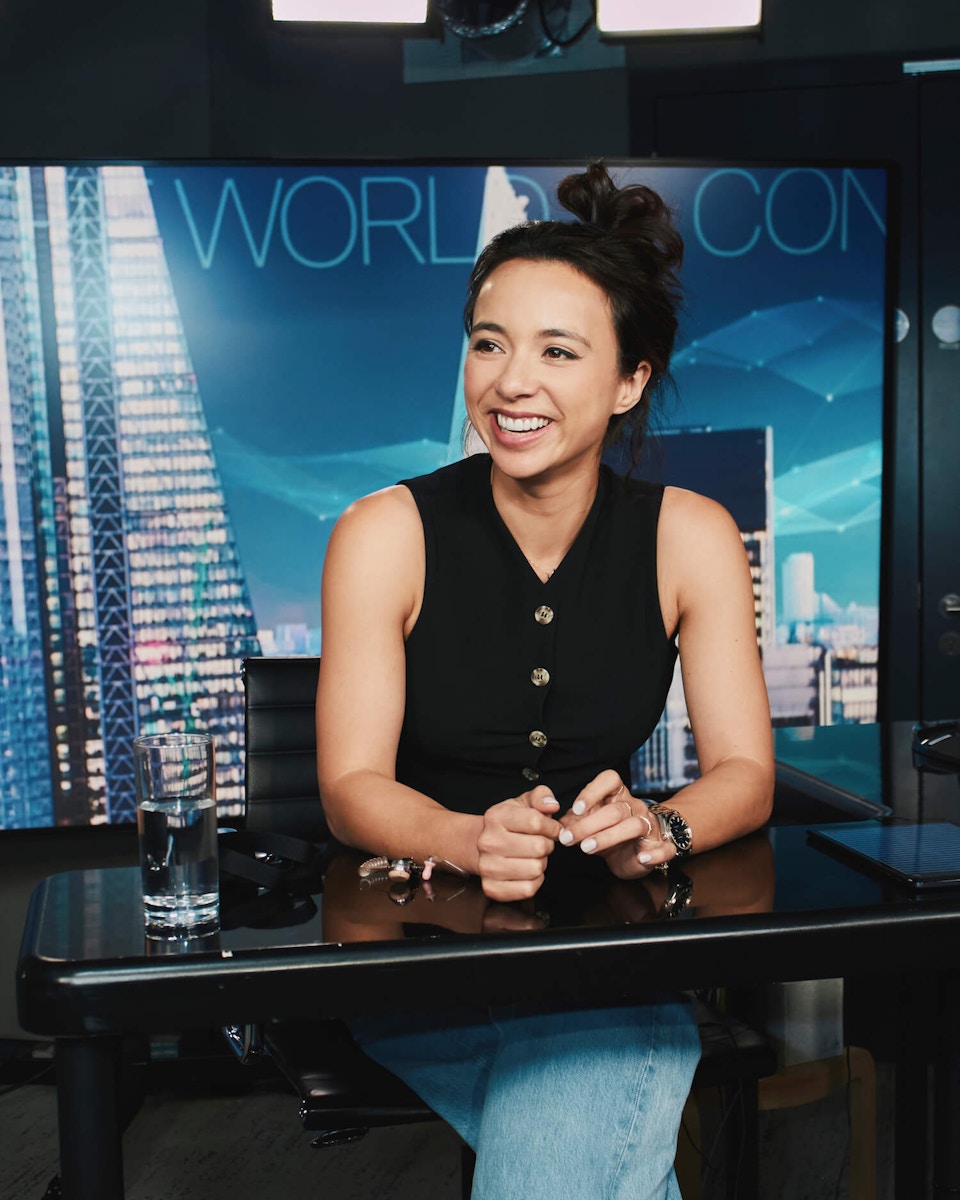
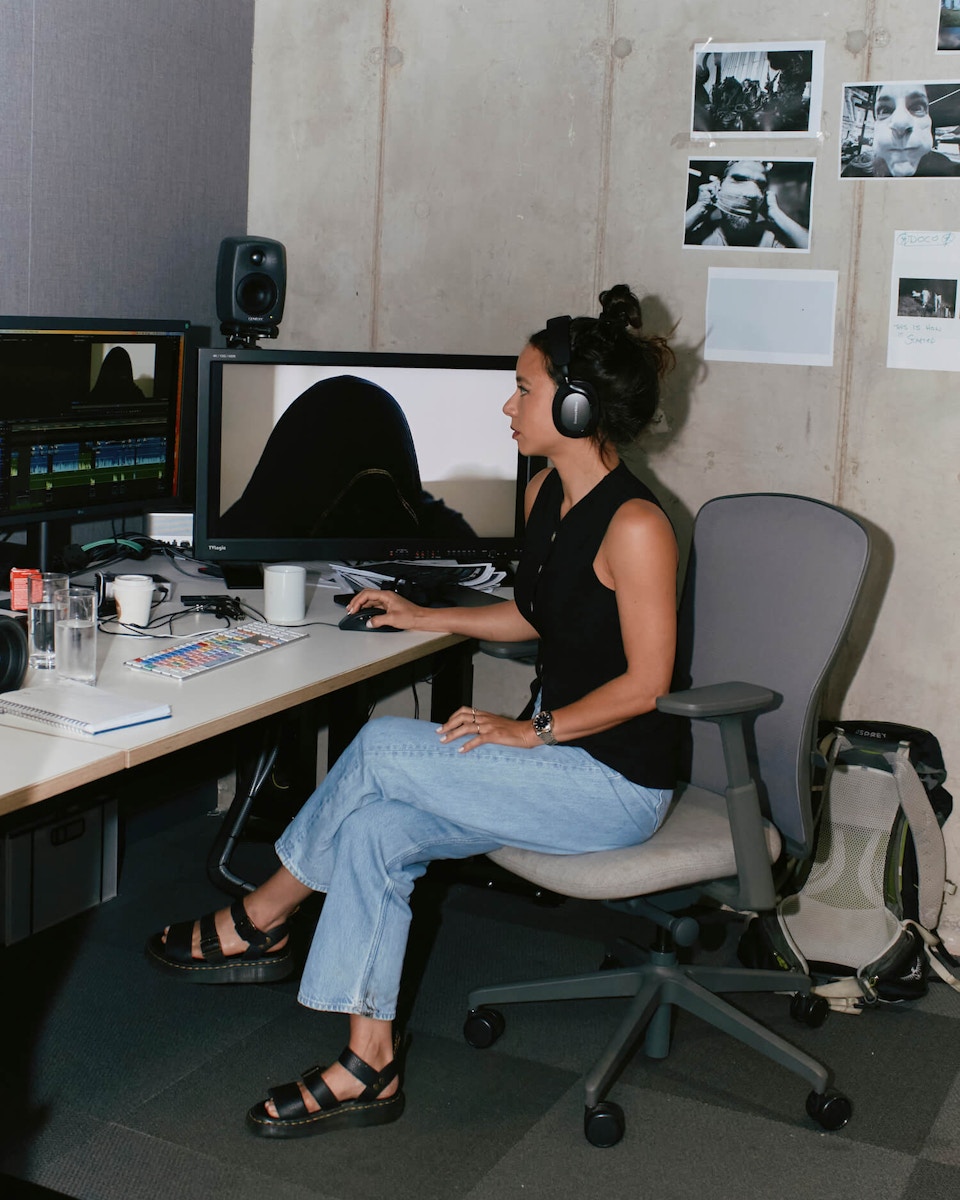
"I was five or six months pregnant. I hadn’t told anyone apart from my team in the field. You’re wearing a heavy flak jacket, your belly sticking out, and you’re asking yourself: am I harming the baby? Is this a good idea?"

Too many children lose their mothers, too many mothers lose their children
I was five or six months pregnant. I hadn’t told anyone apart from my team in the field. You’re wearing a heavy flak jacket, your belly sticking out, and you’re asking yourself: am I harming the baby? Is this a good idea? In that moment, perception of risk changes. Up to then, it had only been me. But when you’re held at gunpoint by the Israeli military or chased by settlers with guns and iron rods, you stop and think, What am I doing?
Becoming a mother has changed my perception of danger. The risks I take are always calculated, but ultimately no story is worth a son losing his mother. I’ve seen too many children lose their mothers. The impact is devastating. When I hear about atrocities, wrongdoings, or human rights abuses, my desire to cover them is still there. In some ways, motherhood has made me more compassionate, more empathetic—and, yes, more anxious. But that empathy is essential to this job.
I truly believe in the value of journalism, and since becoming a mom, these stories resonate even more deeply. The last two big stories I’ve done have both focused on mothers and loss. I’m naturally more drawn to those now. Part of it is also that every assignment requires me to leave my own child, which I thought I’d handle more easily. It’s heartbreaking every time.
When I was pregnant in the West Bank, I didn’t tell the BBC because I worried about how it would be perceived. It’s not the kind of job where you see pregnant women in conflict zones, and honestly it would have made the insurance skyrocket. I didn’t want to add complications. Even then, I thought I could carry on as normal, but I noticed the difference—getting out of breath, not able to run as fast, aversions to certain foods. I was determined, but it wasn’t easy. I remember lying in the back of a crew van with my legs in the air on a bumpy road thinking, What am I doing? and living off snack bars to get through.
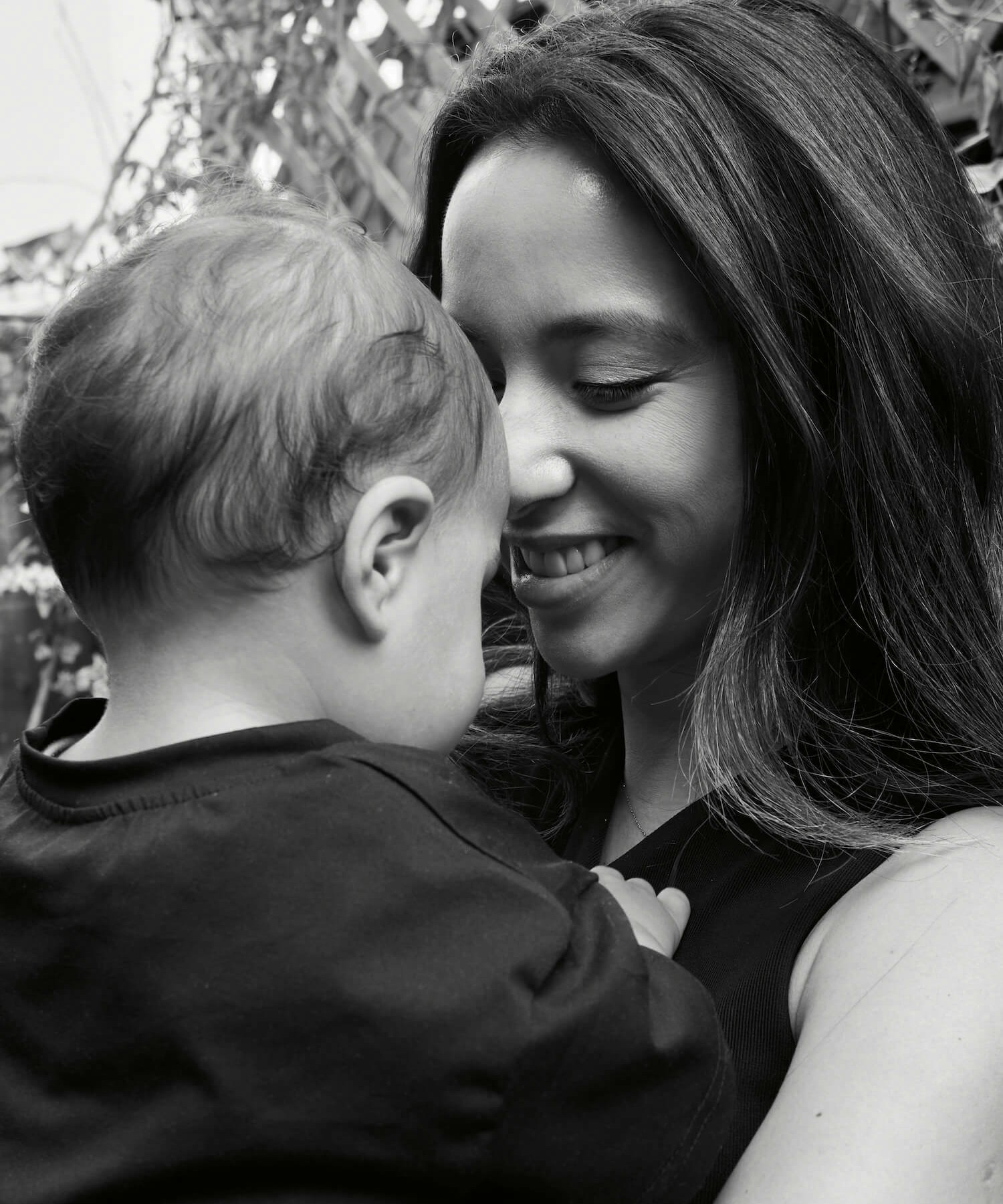

"When I was pregnant in the West Bank, I didn’t tell the BBC because I worried about how it would be perceived. It’s not the kind of job where you see pregnant women in conflict zones. I didn’t want to add complications. I thought I could carry on as normal, but I noticed the difference—getting out of breath, not able to run as fast, aversions to certain foods. I was determined, but it wasn’t easy. I remember lying in the back of a crew van with my legs in the air on a bumpy road thinking, What am I doing?"

Coming home: relief and emotional whiplash
I felt this explosion of emotions the day my kid was born. Overwhelmed with more love than I’d ever felt before, more compassion for other women going through this than I thought possible, and more anxiety than I ever imagined. It can be helpful because it fuels my drive and motivation to highlight people’s stories—especially women, mothers, children, marginalized communities, and those suffering. But sometimes it is too much and I feel overwhelmed by it all.
In Afghanistan, I was with a mother whose baby—around 12 months old, the same age as my son—died in front of us. I’ll never forget the sound of her voice when she realized her son had died. It hit me so hard. Those moments stay with you but they’re also a driving factor in wanting to keep doing this work.
After more than a decade of reporting from conflict zones, you go through peaks and troughs. You start putting up a defensive shield at some point. You’re not numb but you distance yourself.
I remember being in Yemen before I had a child. A suicide bomb had gone off and I was in a hospital with a mother watching her child die. His heartbeat was slowing, and we all knew what was coming. And the only thought in my head was: I can’t get my cameraman in, I can’t film this. Afterwards, I realized how far that defensive wall had gone. I took a break after that because I had to ask myself: how did I get to the point where I cared more about logistics than the humanity of what I was witnessing?
I do have a way of winding down now, though. Everything immediately revolves around my child when I come back home, which is both grounding and healing. Being reunited is the best thing in the world. I’m lucky to be surrounded by family, to have a great husband, strong support at work, and a therapist. I also lean heavily on my crews—having partners in the field who go through the same extreme, unique situations creates a bond, and being able to talk, vent, and process with them is invaluable.
That said, coming home is often the most jarring part: one day you’re with the Sinaloa cartel in Mexico, the next you’re sipping a matcha latte at a café down the road. But having a child gives me more of an anchor. And after doing this job so many times, the repetition itself helps me process.
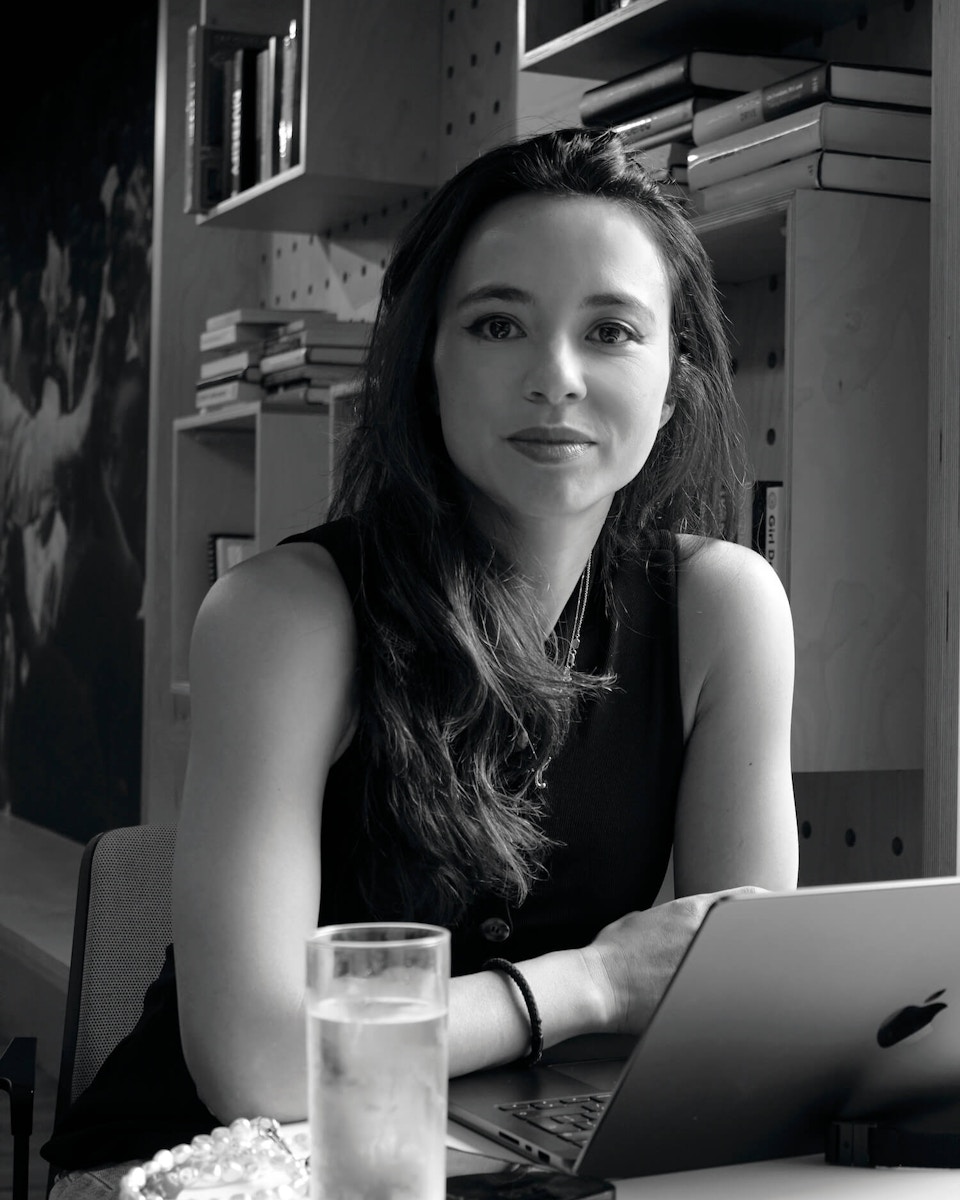
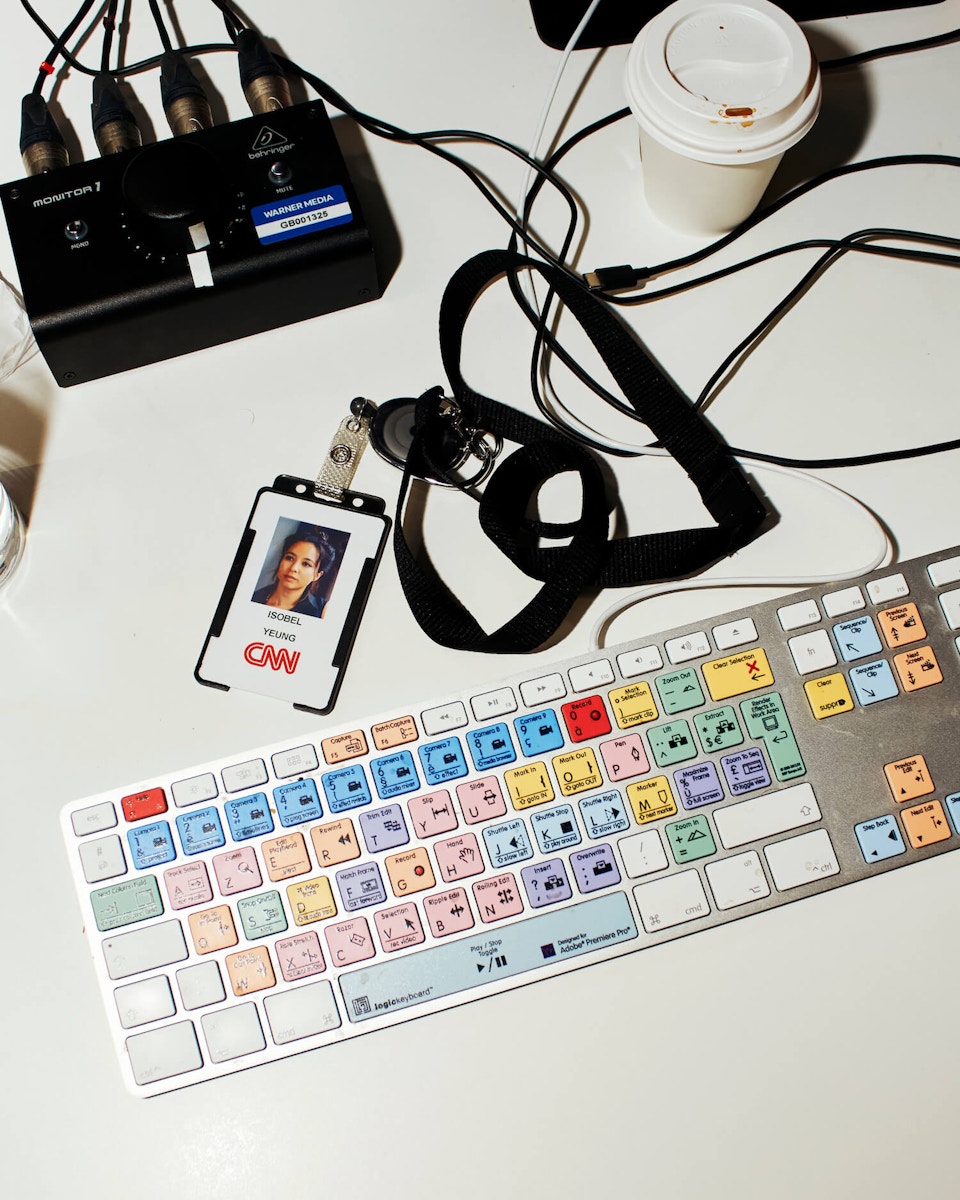
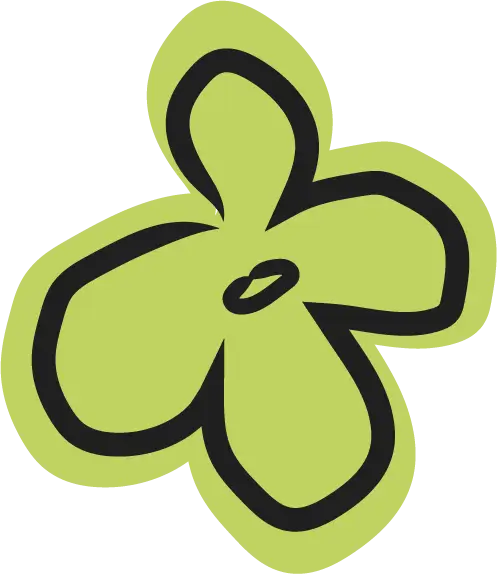
"In Afghanistan, I was with a mother whose baby—around 12 months old, the same age as my son—died in front of us. I’ll never forget the sound of her voice when she realized her son had died. It hit me so hard. Those moments stay with you but they’re also a driving factor in wanting to keep doing this work."
A couple (literally) of journalists
My partner is also in media and travels a lot, which makes things harder. We agreed we wouldn’t both be away for more than two to three weeks at a time, because single parenting is so tough even with support. We also promised to talk openly about our assignments, especially mine since I do more conflict reporting. One particular sticking point is Iran—my husband is half Iranian and has family there. The last time I went, I was detained by the Islamic Republic which was terrifying, and for him, getting that call was awful.
And on the other hand, he gets it. He’s a journalist at heart and understands the value of it, and that it’s what drives me. It’s a balance. I used to just get up and do everything on my own, but now we have to run everything by each other.
The nature of our jobs means that we sometimes piss off powerful people. That makes me very cautious with my child. We don’t show his face on social media or even disclose his name. There are just too many ways people could come after us. For my husband especially—he reports a lot on the far right and dark corners of the internet—the hate can be visceral. It’s hard to know where the internet ends and real life begins, and I don’t trust that they’re separate.
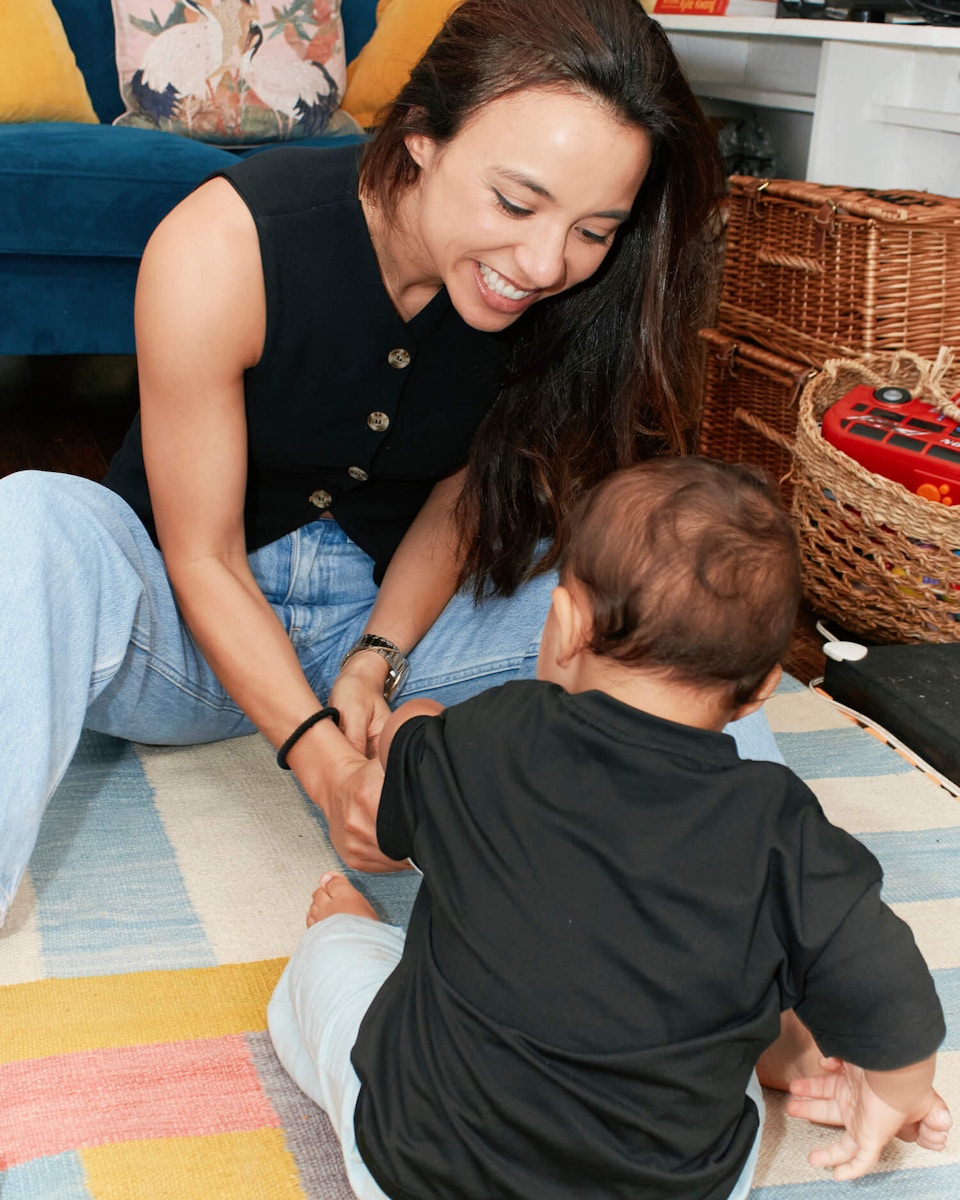
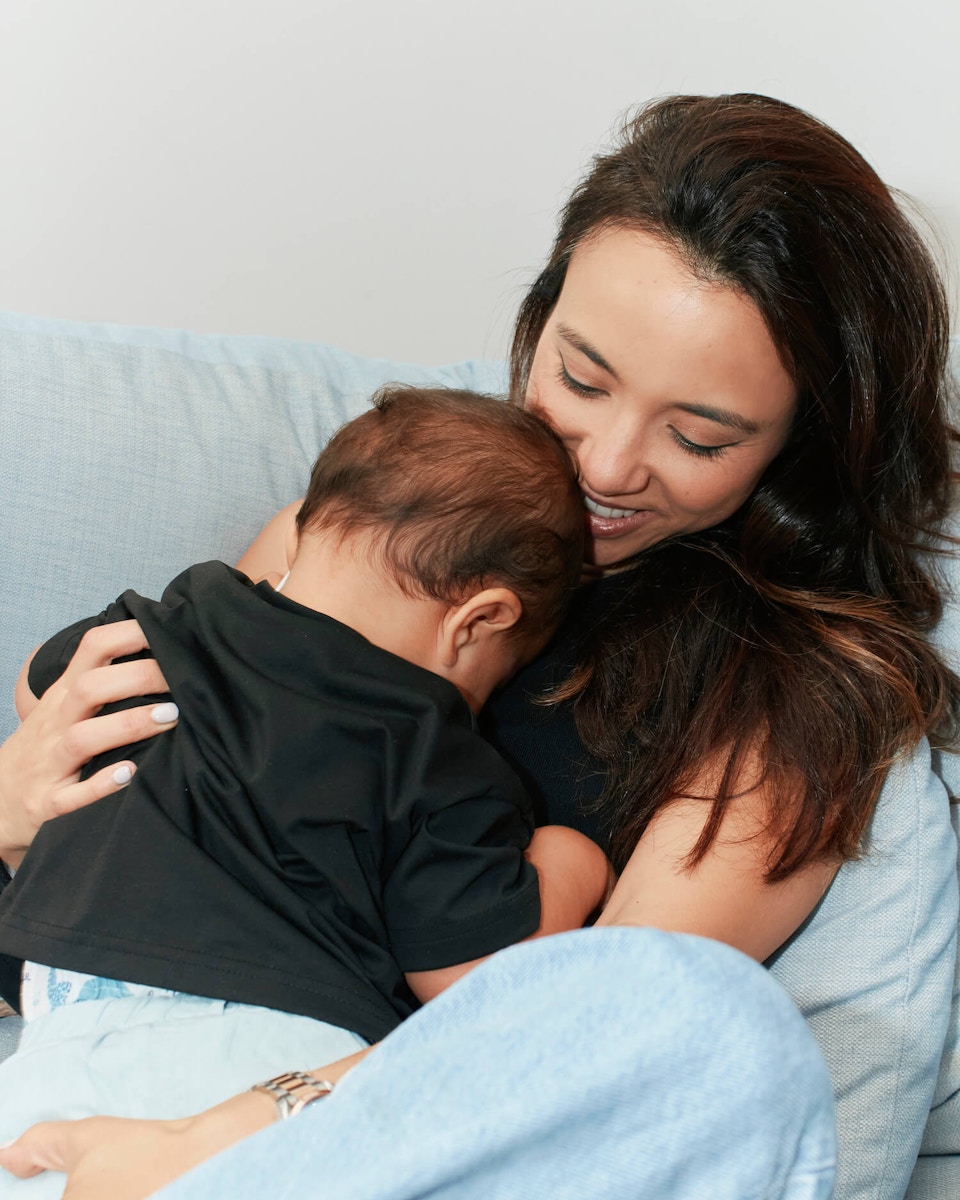
"Coming home is often the most jarring part: one day you’re with the Sinaloa cartel in Mexico, the next you’re sipping a matcha latte at a café down the road. But having a child gives me more of an anchor. And after doing this job so many times, the repetition itself helps me process."

“I knew doing this story meant I could never go back”
There have definitely been hairy moments over my career. Several. I was reporting in Idlib, Syria, when it was held by rebels fighting Assad’s regime. Assad's forces were using a lot of drone warfare. I was on the front lines talking to rebels while armed drones flew overhead, trying to target the exact places we were reporting from. We managed to escape just moments before the position we were located at was bombed. It's a terrifying feeling to run for your life—you feel so small and foolish.
Another time, I was reporting in China on the plight of the Uyghurs, a Muslim minority group. That fear was different. It wasn’t direct danger like in a war zone where you know where the front line is. Instead, the concern was surveillance. Security cameras everywhere, facial recognition everywhere, phones being searched. It makes you feel like your thoughts are being monitored, like you start to police yourself. We had a few very scary moments filming with hidden cameras. If caught, the consequences would have been espionage charges—something they wouldn’t take lightly.
The story of China's Muslim Uyghurs meant a lot to me and still does. I felt like we really broke ground. At that time, there hadn’t been Western reporters covering it undercover. Our reporting—and that of others—led to sanctions being placed on certain government officials and businesses. We were able to uncover and show what’s been described by some in the international community as cultural genocide: over a million people rounded up into re-education camps, their culture, heritage, language stripped away, even children taken from families.
It was personally significant too. Having lived and reported in China for years, I knew doing this story meant I could never go back. That was a big calculation for me. I knew that would be the consequence. But I felt so strongly about it, and I still carry a lot of feelings for the Uyghur people.
Gaza is also top of mind. And no conflict divides people more than the Israel-Palestine conflict. The Israeli government is still not allowing international journalists in. The fact that people are not allowed to report there is horrendous, but what’s worse is that it blocks us from knowing the full truth of what’s happening.
There’s a lot of apathy in general toward people living in Gaza, and what’s worse is that there’s also apathy towards Palestinians and a distrust about who Palestinian journalists are.
But it’s devastating. So many journalists have died over the last 21 months. It’s a huge assault on press freedom. The ones who remain are doing such a heroic job, reporting daily in their own backyard on mass atrocities. It’s such a difficult thing to do when you can’t escape from it at all, and still continuing to shine a spotlight on it is just so impressive.
"I hope my son sees that I’ve always tried to make choices that mattered, that my work gives him permission to do whatever he wants in life."

And in the end…
I don’t want to impose anything on my son, certainly not the expectation of becoming a journalist, especially when none of us knows what journalism will even look like by the time he grows up. But without sounding too noble, I hope he sees that I’ve always tried to make choices that mattered, that my work gives him permission to do whatever he wants in life.
I hope he grows up knowing that he can live a life full of joy, integrity and compassion — and that he is connected to the world and to people in a meaningful way.
To dive deeper into Isobel’s reporting, explore her recent CNN stories below.
"CNN goes to a secret Mexican hideout to meet the Sinaloa Cartel."